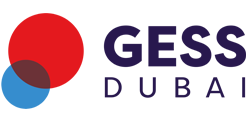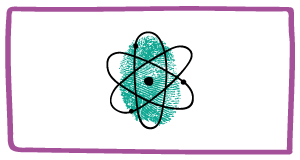Educating MENA
A surge in the number of school children in the Middle East and North Africa (MENA) is driving demand for private schools in key cities across the region.
It’s estimated that 350 new private schools will be needed in Dubai, Abu Dhabi, Jeddah, Riyadh and Cairo by 2020 to cater for the flourishing expatriate population and a rise in the number of locals who want to be privately educated.
In Egypt alone, the number of children aged between five and 19 is expected to grow by 920,000 to 26 million in the next four years. Although many will go to free public schools, more local families are seeking an international curriculum which is only available through private schools.
More local families believe private schools offer a higher quality education and offer better career prospects. What’s more, they’re increasingly able to afford private schooling, with the average GDP per capita standing at US$209,000 in 2015 – much higher than the average US$45,700 among advanced economies.
Meanwhile, expats – whose children are generally not allowed to attend local schools, continue to move to the region. In Dubai, expatriates account for 87 percent of the total population and are forecast to grow by 4.7 percent a year over the next five years.
Vision for the future
Governments in the region have recognised the importance of improving the quality of education and the vital role this will play in their plans for economic diversification and reducing their dependence upon the hydrocarbon sector.
The UAE already has 75 percent of its school age residents attending private schools, but a new report by JLL estimates Dubai and Abu Dhabi will still need an additional 36 and 22 private schools, respectively, by 2020. The school age population in the country is forecast to grow from 13.2 percent in 2015 to 13.6 percent in 2020, creating demand for a further 69,000 school seats in Dubai and 42,500 in Abu Dhabi .
Riyadh, where expats make up 42 percent of the population, is forecast to need 154 new private schools by 2020, while Jeddah will require 67. Saudi Arabia as a whole has seen the number of private students rise by five percent a year between 2011 and 2014, yet private schools still accounts for less than 15 percent of the total.
Cairo is the largest city in the region, where school-age children comprise 28 percent of the overall population. This segment is forecast to grow by 430,000 over the next four years, creating demand for a further 68 private schools.
Investment merits
Asma Dakkak, Research Manager for JLL MENA, says the education sector is already attracting the interest of investors, in particular private equity firms who provide the sector with funding and support.
“We are seeing growing interest from a number of local and regional investors who recognise the potential of education as a defensive segment , backed by government support and capable of generating yields of approximately eight to nine percent per annum.”
Capital has historically focused on established sectors such as offices and residential but other sectors are expected to take off, too, including healthcare as demand soars for good quality hospitals and care homes.
The two main ways to tap into the sector are by investing in an educational provider and by investing in physical real estate. Dakkak says investing in a provider offers a combination of long-term revenue generation and negative working capital, with tuition fees paid ahead of the academic year.
Real estate, meanwhile, benefits from triple-net leases where the tenant pays all the operating expenses and taxes. Unlike traditional asset classes, educational property is leased on a long-term basis, which reduces uncertainty over future cash flows.
Developers are particularly keen on building schools within large master planned residential communities, which are attractive to expats.
Diversification
Investing in education also offers diversification benefits to those investors currently exposed to more traditional asset classes.
There are, however, challenges which need to be addressed. There is a shortage of qualified teachers in the region, tuition fees are often subject to price fixing and it can be difficult to get funding. Banks in Saudi Arabia rarely offer loans for land plot acquisitions.
Nevertheless, Dakkak says the opportunities are undoubted. “In addition to potentially attractive financial returns, the growth of private schools is in line with government policy to raise prevailing education standards across the region.”
Read more: http://www.theinvestor.jll/news/middle-east/00/educating-mena/





